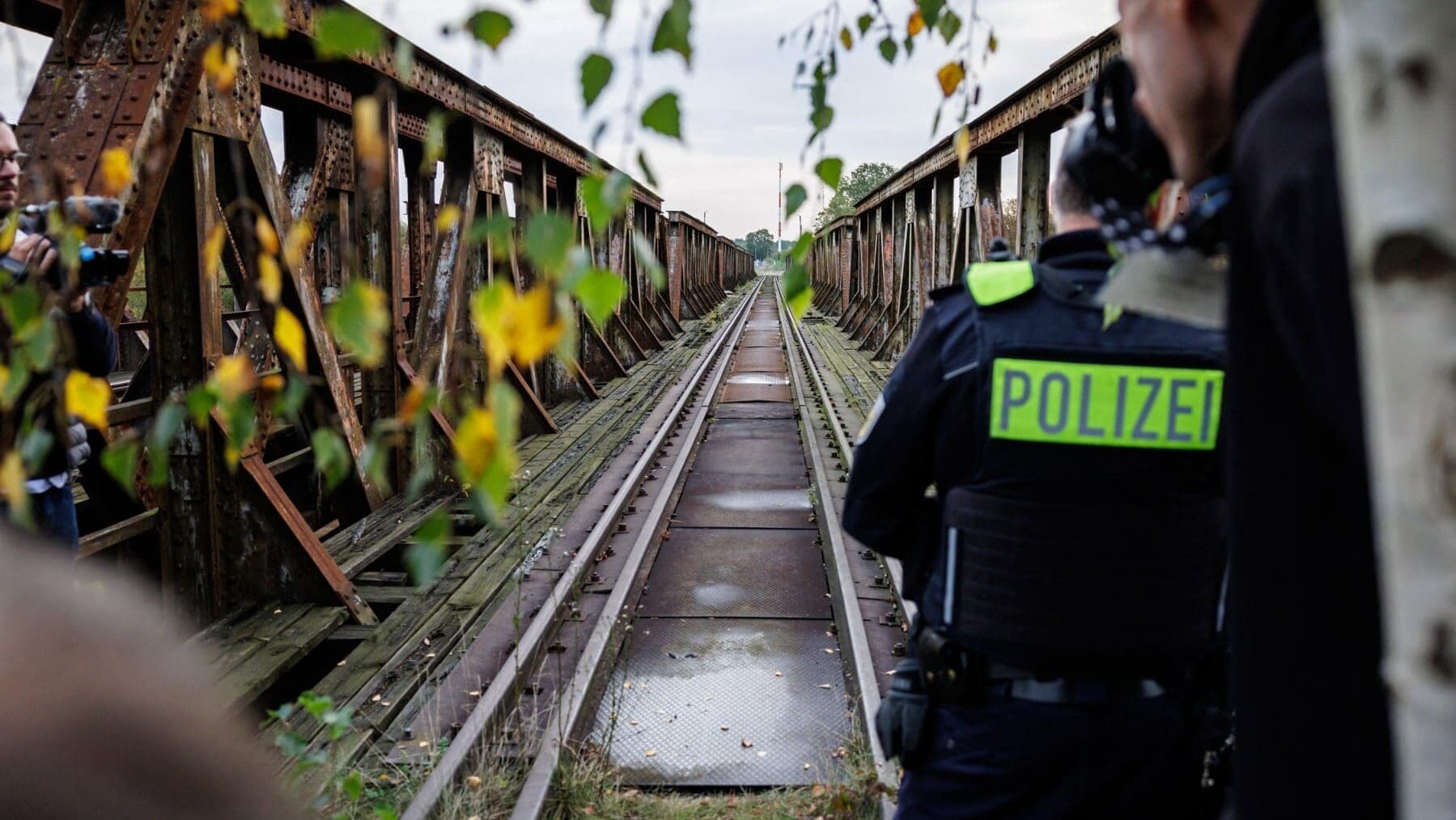
German Federal Police officers stand by a frequently used route by migrants across the German-Polish border near Forst, eastern Germany on October 11, 2023, during a patrol near the border with Poland.
Photo: JENS SCHLUETER / AFP
German police recorded a drastic rise in human smuggling last year, registering 7,920 incidents—an increase of 60% compared to 2022. The number of individuals suspected of criminal involvement in smuggling migrants to Germany rose by 26% to 4,404.
Among the perpetrators, Syrians stand out as the most strongly represented nationality: 752 Syrian nationals were registered, followed by 405 Germans, 397 Ukrainians, 389 Turks, and 173 Afghans. According to the police, who announced their findings on Wednesday, August 21st, Syrians and Turks usually smuggle their own countrymen into Germany, while Ukrainian smugglers mainly bring in Syrian and Afghan migrants from the EU’s border with Belarus.
German authorities reported a significant jump in the number of migrant smuggling cases in 2023, rising by about 60% compared to the previous year, the Federal Criminal Police Office (BKA) said.https://t.co/P227ihbPby
— dpa news agency (@dpa_intl) August 21, 2024
Investigators said it was worrying that, in an increasing number of cases, people were transported in containers that posed a risk to their lives. There is a risk of oxygen or water deprivation as well as hypothermia or injuries in the event of accidents during such journeys. “Most frequently, vans that are easy to rent and for which no special driving licence is required were used for this purpose,” the police said in a statement. The average number of people found in vans rose from ten to nineteen.
In total, the authorities registered 266,224 unauthorised entries, an increase of 33% compared to the previous year. Most of the illegal migrants came from Syria (54,207 people), Turkey (35,732), and Afghanistan (35,370). The numbers are particularly worrying in light of a wave of knife attacks committed by mostly Syrian and Afghan migrants. A shocking crime report presented by the police this week states that “non-Germans are statistically six times more likely to resort to knives in an attack than German citizens. And in sexual crimes, it is seven times more likely.”
However, in the first half of this year, the number of unauthorised entries of migrants into Germany fell by 7% percent compared to the same period last year. At a recent press conference, Interior Minister Nancy Faeser attributed this to immigration controls introduced last autumn at Germany’s land borders with Poland, the Czech Republic, and Switzerland. Germany had previously put in place border checks at its border with Austria.
More than 350,000 people applied for asylum in Germany in 2023, the highest number since 2016, prompting the government to act. “For me, the border controls should remain as long as necessary. We have achieved great success in reducing irregular migration and the fight against smugglers has been very effective,” the Social Democrat interior minister recently said.
While people can travel freely within the Schengen Area—consisting of 25 EU member states plus Iceland, Liechtenstein, Norway, and Switzerland—countries can temporarily reintroduce border controls at their internal borders in the event of a serious threat to security.
While Faeser has the backing of the opposition centre-right CDU/CSU alliance, her coalition partners the Greens are demanding a return to full freedom of movement.
